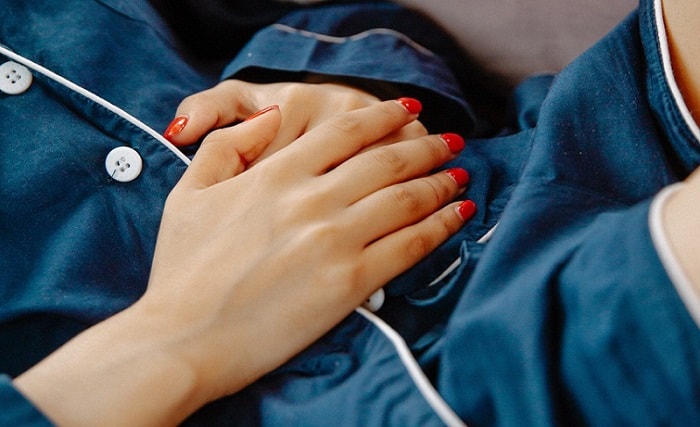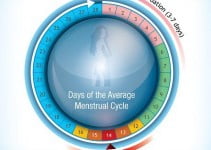
The starting of periods is an important event in the life of a female. It happens during puberty, when the body transitions, changes, becomes more like an adult. The first period is the beginning of womanhood. However, it is also a cause of anxiety both for the young ladies and their caretakers.
The beginning of menstruation means that sexual organs are getting matured, and females may get pregnant on having sex. It occurs, after the matured egg cell was released, but females did not get pregnant, thus causing the uterus to shed its lining [1].
When does the first period start?
It is essential to understand that there are substantial individual differences between the girls, thus on average period starts at the age of 12. However, in some, it may begin as early as 8, while in others, it may begin much later [2].
Studies show that by the age of 15 to 16 years, most girls have regular cycles. If, by that age, periods are not regular, it should be a cause for concern.
Discussing the topic with a girl child is not an easy task. Thus, experts believe that caretakers should gradually start discussing the topic with a girl child, explain to them about sanitary towels, discuss sexual relationships, and so on.
Signs of puberty
It is vital to understand that period does not start all of a sudden, as the body requires lots of time to prepare for them. Thus, before periods begin, there are other signs of puberty or transition to adulthood.
Some of the signs of hormonal changes during puberty are gain in weight and height, changes in hips and breasts, as both get bigger. It also means increased growth of hair under arms and in the pubic region [3].
There are many other signs that near ones can see and feel quite clearly, as a change in body odor, changes in the skin.
Many girls may get acne or pimples. There are also behavioral changes that start happening a few months before the first period. All of these changes occur due to hormonal changes.
The first period – how long does it last, and other characteristics?
During those early days, the body is still fine-tuning itself; things are unpredictable and irregular. It takes time for a period to become regular and predictable.
In most cases, the first period will be quite patchy. It may last anywhere from 2 to 7 days. It is even normal to have two light periods in the first month. The early few periods are rarely heavy, as there are still not enough hormones in the body.
It may take a few months to even a couple of years for periods to become regular in most cases.
It is vital to prepare for the first period. Especially keeping in mind that periods would be quite unpredictable during the initial few months. Thus, it is a good idea to have pads or tampons ready at home.
It would be better to carry them with oneself, as the first period may even start when at school.
Does the first period cause discomfort?
Yes, the first period will cause some distress or anxiety in all cases. Most girls will need to learn to tackle the psychological impact of periods and manage the physical signs.
Some girls may have more severe cramps in the lower abdomen. Others may have headaches, dizziness. Few girls may have symptoms that may not seem to be related to periods like diarrhea [4].
Fortunately, most discomforts can be readily managed without a need for medications. Exercise is one way to address both the physical signs and mental issues related to the first period.
Girls can also use simple methods like applying heat to the lower abdomen or lower back to overcome the pain.
In more severe cases, one may take over-the-counter pain killers like ibuprofen or even aspirin.
Is there a need to see a doctor?
Although it is not necessary to visit a doctor, it is highly recommended to at least once visit a specialist (gynecologist). The first period is the right time to have some initial consultations, checkups.
Apart from medical help, it may be a good learning experience for girls and to ask various questions about body, sex, and much more.
In some cases, it may be necessary to visit a specialist immediately, like, if the first period continues for more than seven days. Or if there is too much bleeding causing dizziness or extreme weakness. Other reasons for a visit could be if periods keep coming in less than 21 days or more than 45 days apart.
Foul smell or pain that is not relieved by commonly used medications are other reasons for a doctor’s visit.
Specialists recommend visiting a specialist if a first period does not come before 15 years of age, as it may say about some severe hormonal issues. Fortunately, many hormonal problems can be treated with great success these days.
As time goes by, girls need to learn more about premenstrual syndrome (PMS). These are a group of symptoms that occur before and during the periods. Some of PMS signs are bloating, breast tenderness, mood swings, changes in the skin, loss of interest in sex, and so on.
Finally, the first period is also a time for learning more about sexual health, pregnancy, and other similar topics. It is also vital to know more about contraception methods that are available for girls.
References
- Your First Period. Published February 2019. Accessed October 13, 2020. https://www.acog.org/en/Patient Resources/FAQs/Especially for Teens/Your First Period
- Starting your periods. NHS.uk. Published April 9, 2018. Accessed October 13, 2020. https://www.nhs.uk/conditions/periods/starting-periods/
- Your Changing Body: Puberty in Girls. Published December 2018. Accessed October 13, 2020. https://www.acog.org/en/Patient Resources/FAQs/Especially for Teens/Your Changing Body Puberty in Girls
- Periods. NHS.uk. Published October 19, 2017. Accessed October 13, 2020. https://www.nhs.uk/conditions/periods/




 Dr. Preet Pal SB is a physician (M.D. Medicine) with a specialization in diabetes (Fellowship in diabetes, Royal Liverpool Academy). He has a particular interest in metabolic disorders, considering that they are rising in every corner of the world, more so in India.
Dr. Preet Pal SB is a physician (M.D. Medicine) with a specialization in diabetes (Fellowship in diabetes, Royal Liverpool Academy). He has a particular interest in metabolic disorders, considering that they are rising in every corner of the world, more so in India.